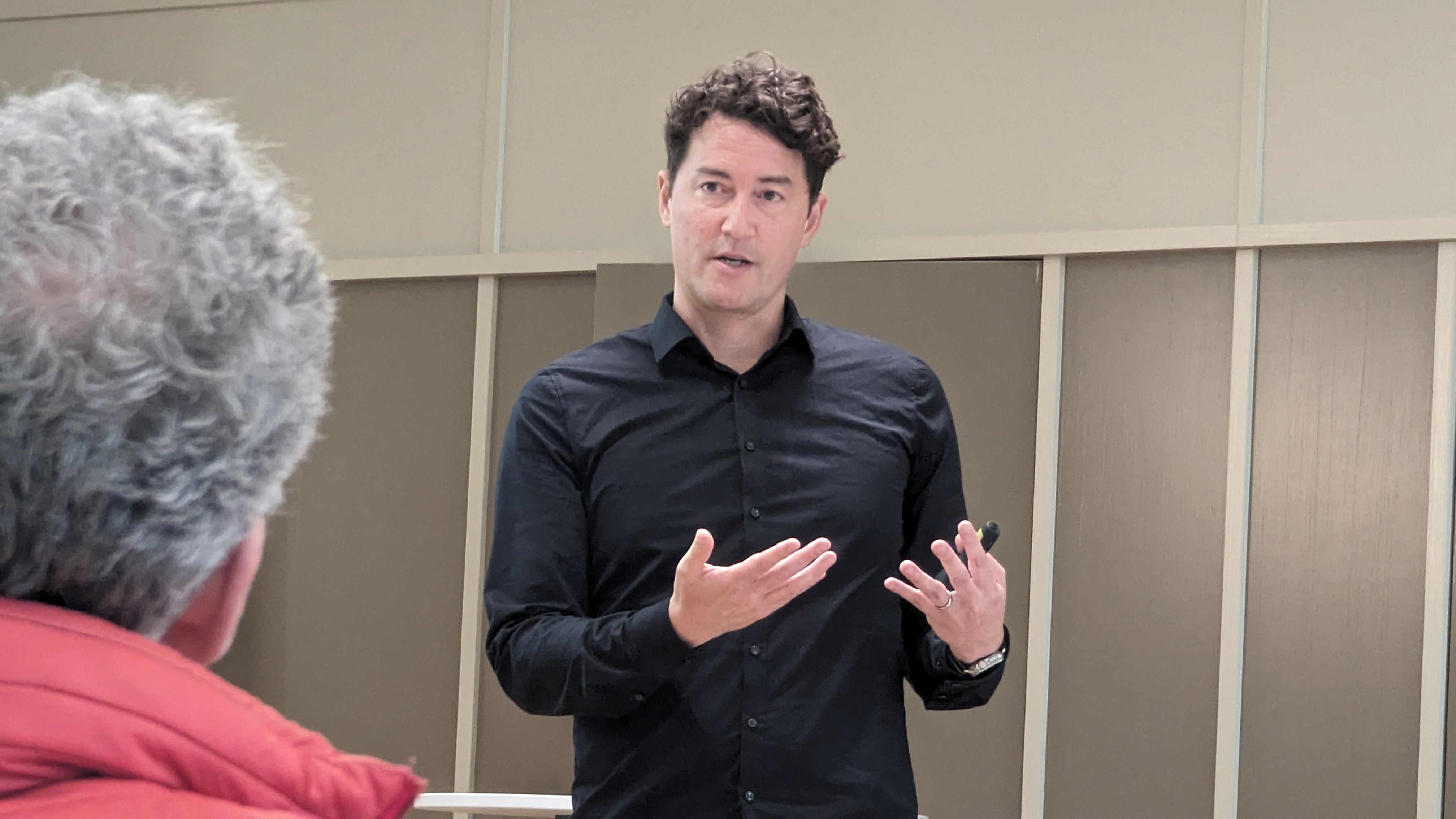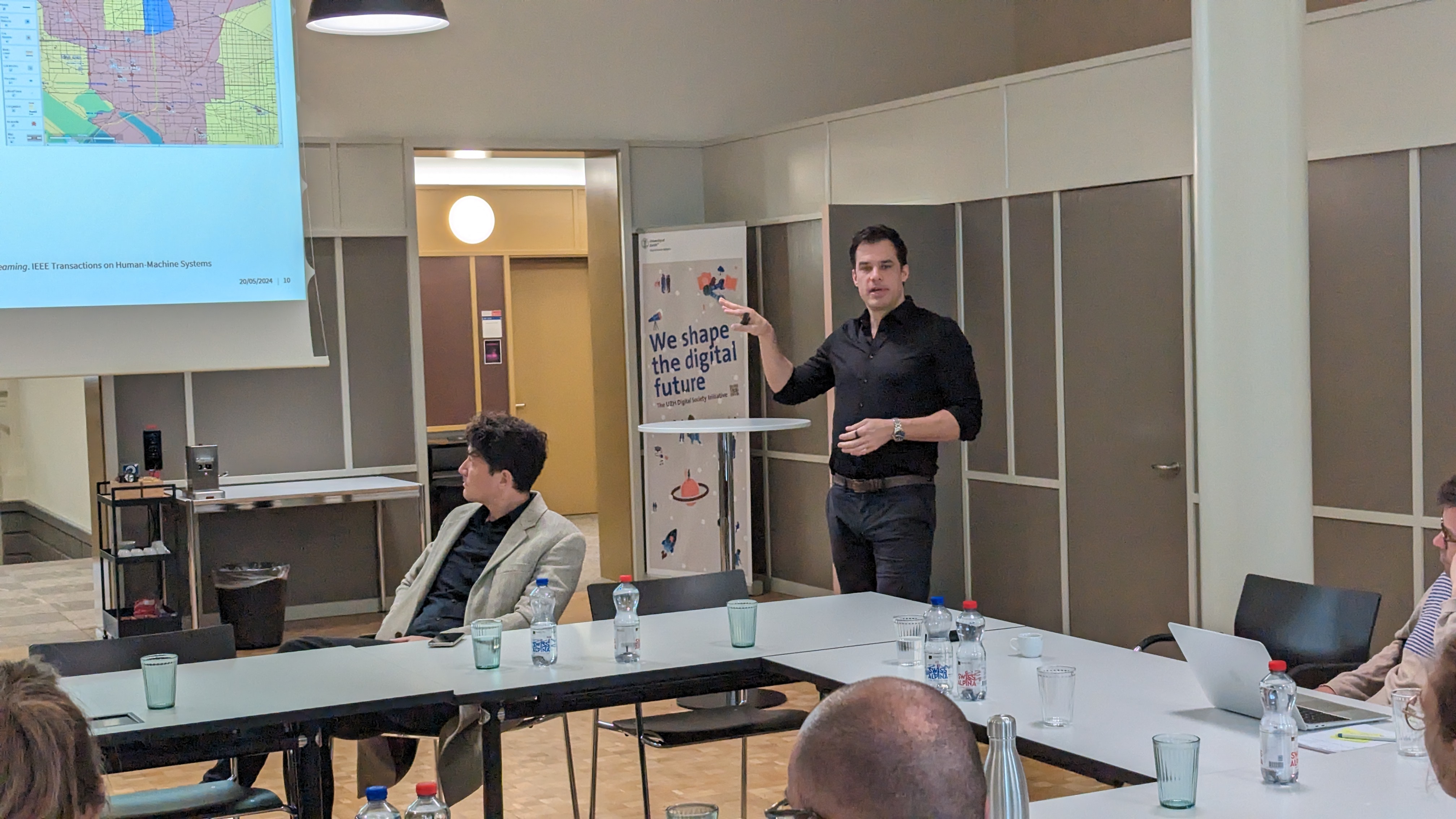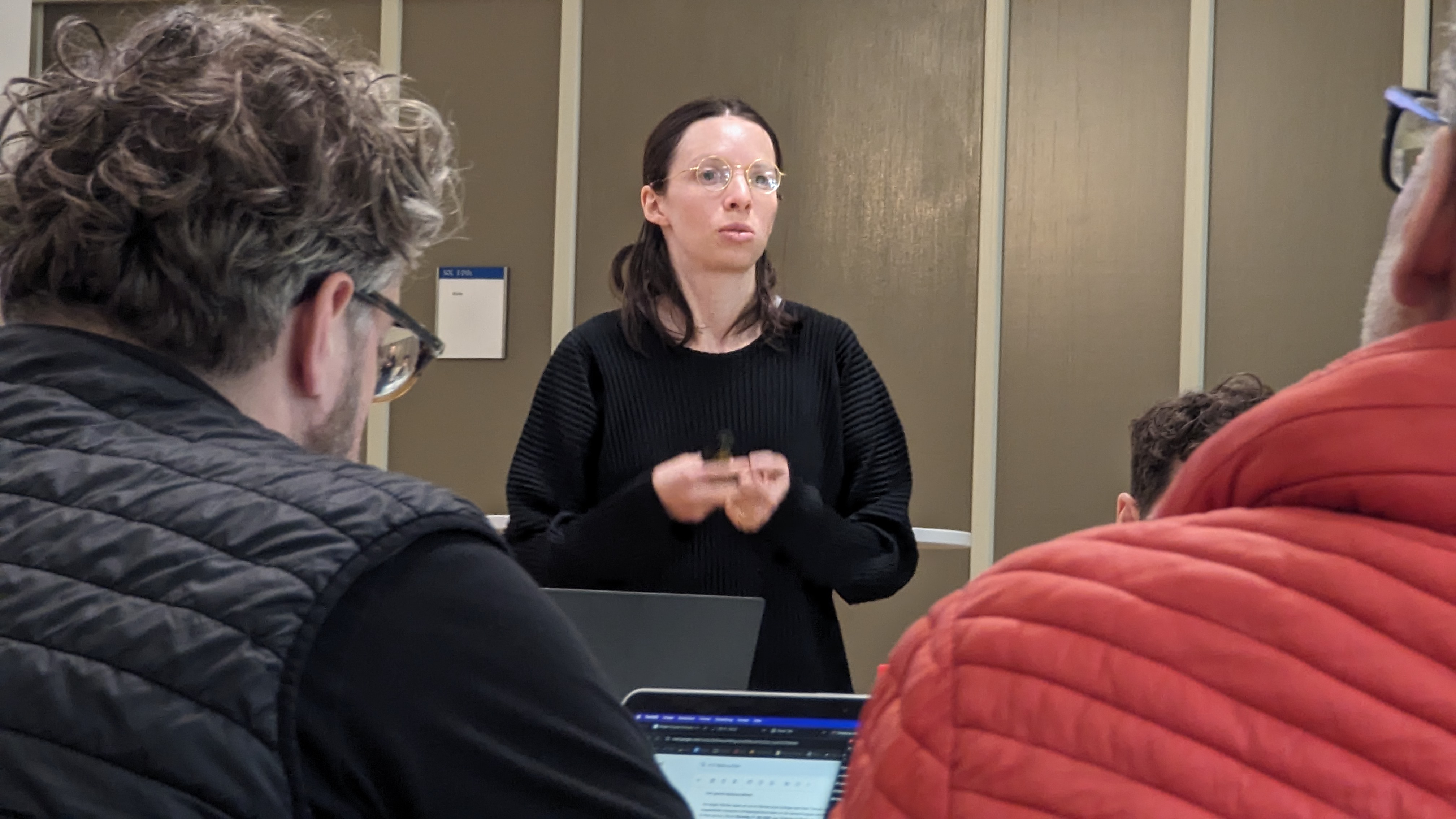DSI media workshop on the economic impact of artificial intelligence
The third round of the DSI media workshop highlighted the impact of artificial intelligence (AI) on the economy as a whole and on the work of teams, among other things. New survey results also provided answers to the question of what the Swiss think about ChatGPT and co.

With its media workshop, the Digital Society Initiative (DSI) of the University of Zurich offers media professionals background information and the opportunity to participate in determining the content of the event. Claudia Witt, DSI Co-Director and moderator of the third workshop, emphasized that participants took advantage of this opportunity at the first edition in 2023. At that time, DSI Managing Director Markus Christen presented the results of a representative survey that showed what Swiss people think about AI applications. The survey was conducted before the launch of ChatGPT. «You pointed out to us at the time that it would be interesting to see how the great attention paid to the topic of AI has changed opinions,» said Witt.
The DSI therefore conducted the survey a second time. The results show: After the introduction of ChatGPT and co., the Swiss population is now much more critical of AI than before. «To put it bluntly: acceptance of AI has decreased and the desire for control has increased,» summarized Markus Christen.
The input from team researcher Jan Schmutz focused on the influence of AI on teamwork. He provided an overview of the current state of research on this topic. One study showed, for example, that teams working with AI were less able to coordinate and communicate well than teams consisting solely of humans. «If we have an AI as a full team member, there must be trust in the AI, otherwise the interaction will not be good,» explained Schmutz. Today, there is a recognizable trend that when working with AI, trust is initially high, but decreases over time. Schmutz was impressed by the new ChatGPT version 4o, which can recognize and react to emotions, among other things. «This interaction is exactly what we need when we need to work together as a team.»
Economist David Yanagizawa-Drott looked at the influence of AI from a macro perspective. He showed that AI can take on more and more tasks and perform them at least as well as humans in ever shorter development times. How AI will change the economy depends above all on the questions of what capabilities AI will have and at what price the technology will be available. «But we can determine these points ourselves. After all, the technology was created by humans.» What will be important is how the public and legislators respond to the questions about the capabilities and price of AI with their actions.
Nikki Böhler from the Intersections association presented the HUMAN project. «The aim is to carry out a human rights and ethical evaluation of AI systems, incorporating as many different perspectives as possible,» she explained. The aim is to make concrete recommendations on how a system can be better designed to meet the needs of those affected. The first evaluation for an organization is currently being completed. Böhler's first insight: «Unfortunately, the inclusion of various stakeholder groups is still completely new in the development of AI systems.»
Among other things, the workshop provided the basis for articles in the online platform
Inside IT and in Blick. The next DSI media workshop will take place next fall on the topic of «Disinformation».
The DSI media workshop is funded by Stiftung Mercator Schweiz.

